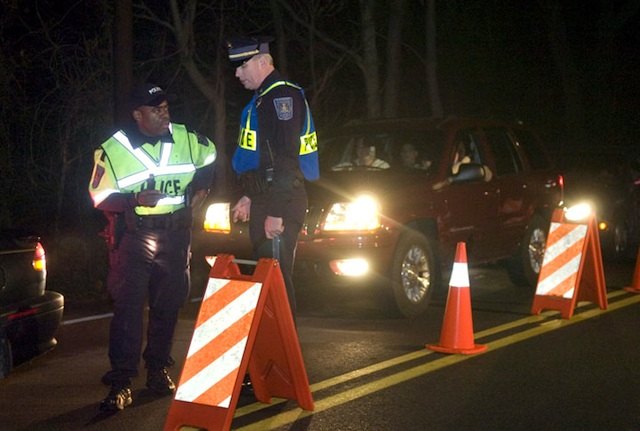Florida DUI Checkpoints: The Three-Minute Rule
Got a heads-up from the PR Newswire re: Florida DUI Attorney John Musca. Mr. Musca wants you to know that he’s fighting for your (i.e., his clients’) constitutionally-guaranteed rights and freedoms. Musca’s press release trumpets the dismissal of a recent DUI case, where a careful reading of the law saved his client’s pickled bacon. NB: if the Florida po-po let you go after three minutes, remember: even though you’ve only got one minute to save the world, please observe all posted speed limits.
The state of Florida concedes that DUI checkpoints are constitutional and valid. The Supreme Court acknowledges that DUI checkpoints do in fact constitute a “seizure” relative to the Fourth Amendment yet are constitutionally acceptable with evident effectiveness and minimal intrusion. Hence the three minute rule where every vehicle that enters a designated checkpoint site cannot be detained in traffic for more than three minutes. In the event of exceeding the three minute time allowed, the officer in charge must temporarily suspend the diversion of vehicles into the checkpoint lanes and begin a systematic selection of vehicles to be stopped at the discretion of the checkpoint commander. Vehicles will then proceed back into the checkpoint lanes when the period becomes less than three minutes.
More by Robert Farago


































Comments
Join the conversation
These "checkpoints" are Constitutionally prohibited in Michigan. The police must cite a reason for pulling you over. We also do not have toll roads here. We pay taxes to fund our roads. Incidentally, Michigan was also the first English-speaking territory in the world to outlaw capital punishment, in 1846. (It seems they realized, way back then, that the system is fallible.) All that said, Michigan has some of the harshest penalties in the country for drunk driving. It's really not a good idea to do it anywhere, but especially not here.
They did one of these in my area a few weeks back. Nailed a few people for expired registration. That's it. No DUI's. And I thought the Supreme Court ruled that the act of turning away from a checkpoint was not reason enough for the police to pull you over?
I just had to post this. Say it can't happen here: http://seattletimes.nwsource.com/html/localnews/2009873854_medina16m.html